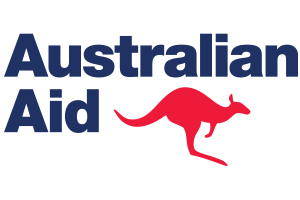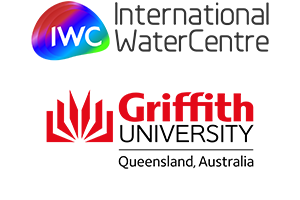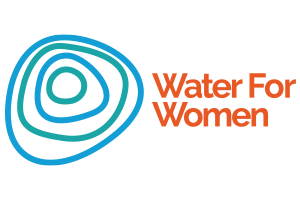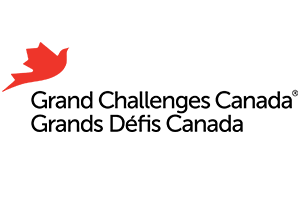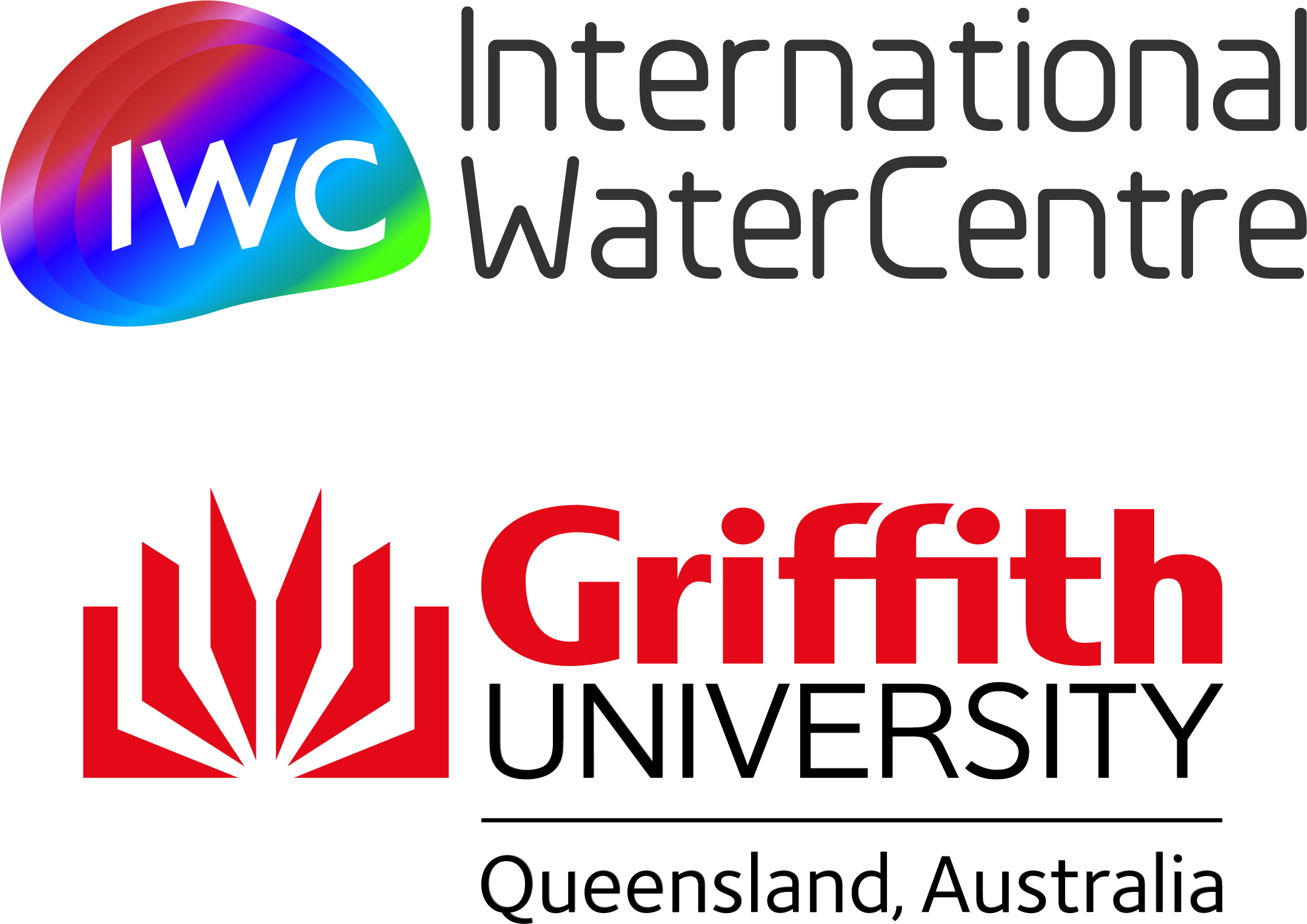Have you washed your hands? WASH behaviour change during the COVID-19 pandemic
During the WASH and COVID-19 Pandemic Online Symposium, Plan International Australia and partners, supported by the Water for Women Fund, are convening a workshop on COVID-19 and WASH behaviour change.
In 2020, the whole world had to react, adapt and respond to the COVID-19 pandemic. There were many governments, NGOs and other organisations already developing and delivering important WASH behaviour change programs. In response to the pandemic, people had to pivot and adapt existing or planned activities, and in other cases develop new campaigns and materials particularly encouraging handwashing as a defense against COVID-19.
As part of the WASH and COVID-19 online symposium, an important workshop is being convened to share experience on how WASH behaviour change programs developed and/or adapted in response to COVID-19. The workshop will reflect on the experience of Water for Women partners Plan International Australia, SNV, World Vision Bangladesh, iDE and Thrive Networks particularly during the crunch period, in the first half of 2020, where they rapidly adapted or developed new WASH behaviour change programs.
Another important area to be explored is what the sector has learned about different ways to deliver behaviour change particularly taking advantage of online tools and the capabilities of digitally savvy colleagues. Examples include video messages, animations, SMS messaging and social media channels.
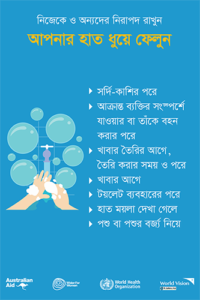
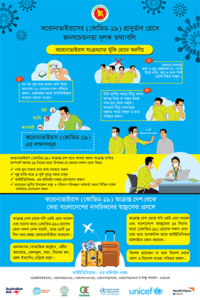
An example of WASH COVID-19 behaviour change handwashing poster in Bangladesh
John Kelleher, Plan International Australia, observes “a silver lining of COVID-19 for WASH has been the profile that WASH has gained as a primary preventative health measure and how critical it is to health security and to an extent economic security in a broad sense. As organisations we have the opportunity to embed WASH in all our programs and initiatives including areas where it may not have traditionally been thought of such as transport, economics and business”.
Workshop participants will engage in reflection on the extent to which the COVID-19 context has exacerbated—or ameliorated—existing WASH behaviour change challenges around knowledge, motivation, resources, opportunity, implementation and sustaining behaviours.
COVID-19, for a period of time at least, has raised the profile of handwashing and the motivation for improved practice. The need to wash hands to reduce the risk of catching COVID-19 is simple and clear. But, in some cases, enabling handwashing has been made more difficult because people have lost jobs and income, they have reduced mobility, more people are at home putting pressure on the scarce and expensive home resources, supply chains have been reduced and compromised. It is a complex set of factors where on the one hand the motivation has been simplified yet the resource availability for many is much harder.
“We have been conducting a study to evaluate the effectiveness of our handwashing COVID-19 response project in Vietnam. We are looking forward to sharing the study’s findings on handwashing practices and community-based behavioural change communication during the pandemic and discussing some methodological challenges in researching behavioural change in rural Vietnam” said Dr Lien Pham from Thrive Networks/East Meets West.
Other Water for Women partners will draw on their experience of COVID-19 and WASH behaviour change activities, which may include the following examples. SNV developed an innovative COVID-19 and hygiene communication campaign in Lao PDR designed during the first lockdown. The campaign aimed to extend COVID-19 messaging to rural remote areas, adopting accessible communication channels for ethnically diverse groups. Well-known celebrities including producers, artists, composers and presenters collaborated together to share government messages on COVID-19 through song, animation and drama. The campaign obtained more than 500,000 views through social media in the first week alone.
World Vision Bangladesh created a multi-channel COVID-19 behaviour change campaign and community led monitoring system which supports the ongoing practice of handwashing. “In Bangladesh, the SHOMOTA project developed and disseminated hygiene messages to prevent the spread of COVID-19, focusing on people with disabilities, women and the most vulnerable. Messages were delivered through multiple channels including online platforms, community radio and mobile SMS messaging. We also facilitated local governments, especially Union Parishad, to mobilise community members to install low-cost, inclusive hand washing devices in households” said Chandan Z. Gomes, the Senior Director of Operations and Programme Quality at World Vision Bangladesh.
iDE developed a behaviour change campaign, “Yey Komru” (“Role Model Grandmother” in Khmer), to address priority areas in WASH, specifically around improving child-focused WASH behaviours in Cambodia. This multi-stakeholder campaign designed open-source materials to create a harmonious approach to improving WASH practices. While the original campaign was developed prior to the onset of the pandemic, the handwashing materials and approaches were adapted and used throughout the country by various organisations to encourage key hygiene-related behaviour changes to prevent the spread of COVID-19. Working with different organisations, the government, World Bank Group and the local community, the campaign has been designed through a collaborative approach. Rooted in deep research, multiple rounds of testing and exploratory methods to uncover what triggers behaviour change, it includes innovative solutions with practical and contextual components. Going beyond simply designing behaviour change communications, it incorporates new services, products, and tools that can be used in a sustainable way by the local community. iDE hopes that through this collaborative and evidence-based approach, the campaign will engage people in deeper ways than seen before, creating positive impact, and improving the health outcomes of children in Cambodia.
The COVID-19 and WASH behaviour change workshop will be held on Wednesday 21 April 2021.
For more information click here.

‘Stop Stop Covid’ song in Lao PDR by SNV and Water for Women
Watch the video here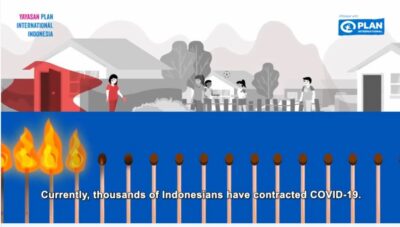
COVID-19 behaviour change: Plan Indonesia animation example:
“Protect Ourselves and Loved Ones from COVID-19″
Watch the video hereThe online symposium WASH & the COVID-19 Pandemic: Responses for recovery and resilience is a knowledge-sharing event of Water and WASH Futures. Water and WASH Futures is a partnership activity of the Australian Aid program and International WaterCentre; this symposium is delivered with the partnership of Water for Women Fund and Grand Challenges Canada. For more information, visit washfutures.com
